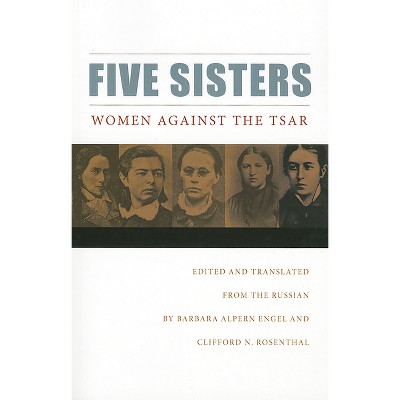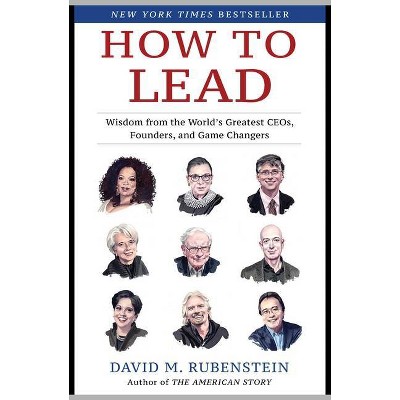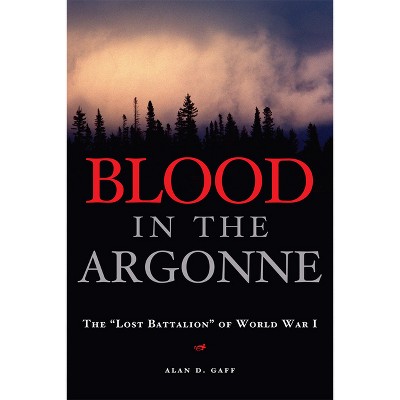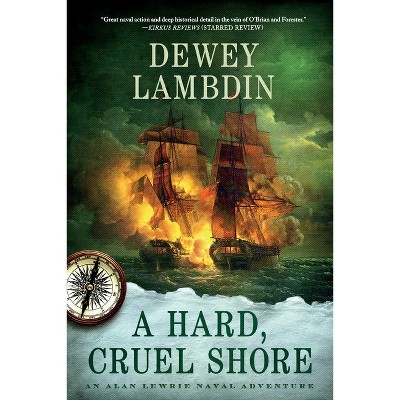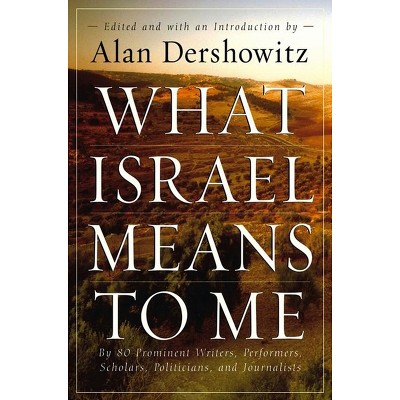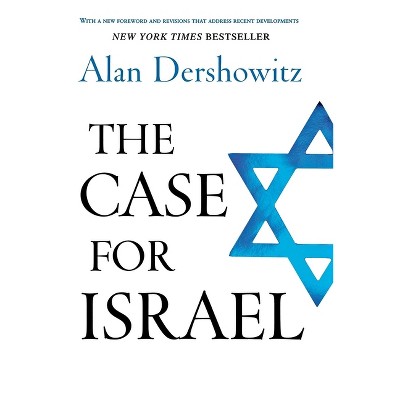Sponsored

Under Osman's Tree - by Alan Mikhail (Paperback)
$38.00
In Stock
Eligible for registries and wish lists
Sponsored
About this item
Highlights
- Osman, the founder of the Ottoman Empire, had a dream in which a tree sprouted from his navel.
- About the Author: Alan Mikhail is professor of history at Yale University.
- 352 Pages
- History, Middle East
Description
Book Synopsis
Osman, the founder of the Ottoman Empire, had a dream in which a tree sprouted from his navel. As the tree grew, its shade covered the earth; as Osman's empire grew, it, too, covered the earth. This is the most widely accepted foundation myth of the longest-lasting empire in the history of Islam, and offers a telling clue to its unique legacy. Underlying every aspect of the Ottoman Empire's epic history--from its founding around 1300 to its end in the twentieth century--is its successful management of natural resources. Under Osman's Tree analyzes this rich environmental history to understand the most remarkable qualities of the Ottoman Empire--its longevity, politics, economy, and society. The early modern Middle East was the world's most crucial zone of connection and interaction. Accordingly, the Ottoman Empire's many varied environments affected and were affected by global trade, climate, and disease. From down in the mud of Egypt's canals to up in the treetops of Anatolia, Alan Mikhail tackles major aspects of the Middle East's environmental history: natural resource management, climate, human and animal labor, energy, water control, disease, and politics. He also points to some of the ways in which the region's dominant religious tradition, Islam, has understood and related to the natural world. Marrying environmental and Ottoman history, Under Osman's Tree offers a bold new interpretation of the past five hundred years of Middle Eastern history.Review Quotes
"Under Osman's Tree frames the Ottoman Empire as an ecosystem. By emphasizing the complex relationships between imperial power and nature, Mikhail introduces a dizzying range of human and nonhuman actors, demonstrating how animals, water, silt, microbes, trees, and volcanoes might recast more traditional readings of sultans, bureaucrats, and peasants. . . . Mikhail offers another trailblazing contribution to the burgeoning field of Middle Eastern environmental history. It is a welcome addition to advanced undergraduate and graduate syllabi, laying out an ambitious agenda for colleagues working on Middle Eastern and global environmental histories."-- "Environmental History"
"Under Osman's Tree: The Ottoman Empire, Egypt, and Environmental History is a work of synthesis, and one of the first in Middle East environmental history since the field began to achieve prominence in the last decade... Under Osman's Tree is a persuasive plea for the value of understanding empire as ecosystem. Richly informative yet highly readable, Under Osman's Tree deserves the attention of anyone interested in how one of the world's most enduring polities lived on its soil and water."--Daniel A. Stolz "American Historical Review"
"'The Ottoman Empire was an ecosystem.' Thus, historian Mikhail concludes his rich, part socioeconomic, part environmental history of early modern Ottoman Egypt. Filling a hole in the historiography with a breathtaking array of cases, themes, and illustrations, Mikhail offers an ideal pedagogical tool for all levels of university courses. He digs into his analytical tool box and reveals an Egypt deeply integrated into the larger world, both economically and ecologically. From accounts of droughts and bubonic plagues to the aftereffects of volcanic eruptions in Iceland, Mikhail's contribution opens a new prism through which to study human interactions with nature. Perhaps the most valuable contribution is the author's charting of the vibrant synthesis of life patterns between peasants, local landowners, and imperial governors and the ebbs and flows of the natural life upon which the Ottoman Empire's wealthiest province depended. Add to the mix the equally complex (sometimes deadly) relationship Egyptians necessarily had with beasts of burden, rats, and fleas, all sharing the fate of the temperamental seasonal flooding of the Nile, and this book makes for an outstanding addition to any library. Essential."-- "Choice"
"Certainly the best work ever on Ottoman environmental history. Brings the Middle East into the global picture in as comprehensive a way as can possibly be imagined."-- "Roger Owen, Harvard University"
"Focusing on early modern Egypt, Mikhail puts power and knowledge in the Ottoman Empire in conversation with environmental relations--the movement of water, the accumulation of silt, the distribution of food, the need for wood for ships, the spread of disease, the possession and use of animals as sentient commodities, climatic fluctuations, and fundamental changes in the organization of human and animal labor. The result is a reinterpretation of the Ottoman Empire as an ecosystem that expands the possibilities of environmental history."-- "Richard White, Stanford University"
"In presenting the early modern Ottoman regime as relatively benign--at least environmentally benign--Alan Mikhail is upsetting a commonly held view of Ottoman rule as singularly destructive and backward looking. . . . In fact, by using the examples of Egyptian food exports to different parts of the Empire--most notably to the Hijaz--and timber imports into Egypt from Anatolia, Professor Mikhail shows how provinces were interdependent and that the centre-periphery model is misleading. Watching the author demolish such preconceptions is one of the many pleasures of reading this book. In making a notable contribution to environmental history, from Nile water, to mud, to animals, crops, and finally to humans, Professor Mikhail also helps us to understand how the Ottoman Empire worked as a political system."-- "Metascience"
"The author is a gifted storyteller, and he spins his sources into a vivid and often colourful portrait of eighteenth-century Egyptian society.... Through his rich source-base, moreover, Mikhail masterfully demonstrates the value of a methodological approach to the history of empires that reaches beyond imperial archives and the scope of the central administration. The book's greatest strengths lie not only in its nuanced depiction of rural life and its critical update of Middle Eastern historiography, but also in its composition."-- "English Historical Review"
"This is an outstanding book, carefully written and timely. Mikhail has brought the tools of environmental history to bear in this fresh telling of Egyptian, Ottoman, and Middle Eastern history. He focuses on the last five hundred years, after Egypt became the crown jewel of the Ottoman Empire, and masterfully embeds his history into the complex ecologies surrounding the Nile River, an enduring source of both life and cruel natural disasters. With thoughtful thematic categories driving his analysis, Mikhail makes an important contribution not just to Middle Eastern history, but to how a new generation of historians must view the relationship between people and the changing face of our planet, particularly during the new uncertainty of the Anthropocene Epoch."-- "Brett L. Walker, Montana State University"
"With this rich and accessible study of the relationship between human communities and their natural environment in Ottoman Egypt, Mikhail offers us an original interpretation of Ottoman history. Rarely does a new book make us rethink completely our assumptions about a subject matter we think we know well. Under Osman's Tree does precisely that, and as such it is a worthy successor to Fernand Braudel's magisterial classic, The Mediterranean."-- "Resat Kasaba, University of Washington"
About the Author
Alan Mikhail is professor of history at Yale University. He is the author of The Animal in Ottoman Egypt and Nature and Empire in Ottoman Egypt: An Environmental History and the editor of Water on Sand: Environmental Histories of the Middle East and North Africa.Dimensions (Overall): 9.0 Inches (H) x 6.0 Inches (W) x .79 Inches (D)
Weight: 1.14 Pounds
Suggested Age: 22 Years and Up
Number of Pages: 352
Genre: History
Sub-Genre: Middle East
Publisher: University of Chicago Press
Format: Paperback
Author: Alan Mikhail
Language: English
Street Date: March 8, 2019
TCIN: 1006095624
UPC: 9780226638881
Item Number (DPCI): 247-38-2180
Origin: Made in the USA or Imported
If the item details aren’t accurate or complete, we want to know about it.
Shipping details
Estimated ship dimensions: 0.79 inches length x 6 inches width x 9 inches height
Estimated ship weight: 1.14 pounds
We regret that this item cannot be shipped to PO Boxes.
This item cannot be shipped to the following locations: American Samoa (see also separate entry under AS), Guam (see also separate entry under GU), Northern Mariana Islands, Puerto Rico (see also separate entry under PR), United States Minor Outlying Islands, Virgin Islands, U.S., APO/FPO
Return details
This item can be returned to any Target store or Target.com.
This item must be returned within 90 days of the date it was purchased in store, shipped, delivered by a Shipt shopper, or made ready for pickup.
See the return policy for complete information.
Trending Non-Fiction


$18.28
was $19.58 New lower price
4.7 out of 5 stars with 17 ratings

